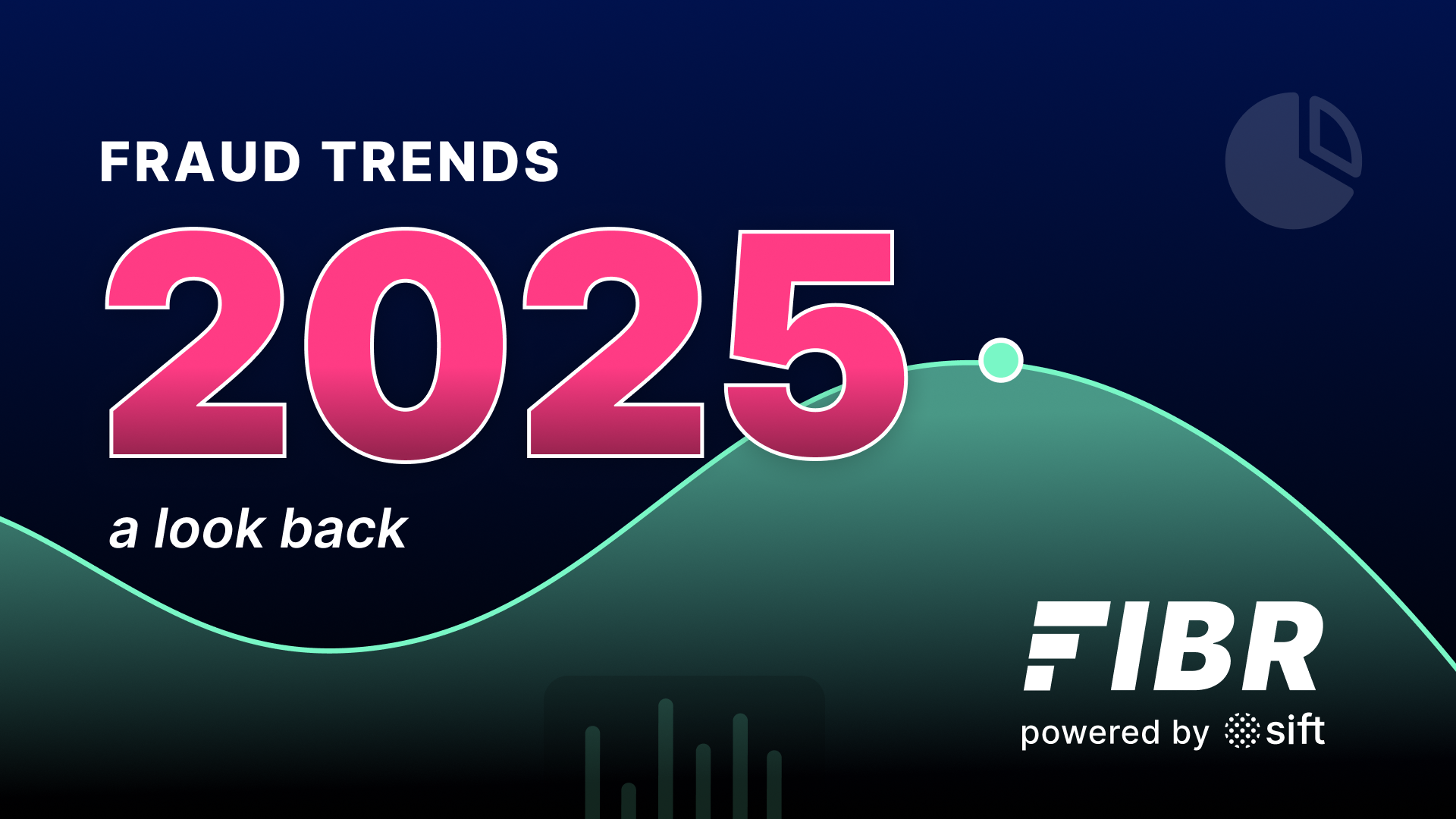Recent breakthroughs in artificial intelligence are changing the internet as we know it. Praised for its limitless potential and criticized for its risks, generative AI tools such as Bard are proving to be a double-edged sword.
Fraudsters are rapidly leveraging the technology to create synthetic text, code, images, audio, and video in order to launch advanced social engineering scams. These AI-enhanced scams are so effective because they can mimic conversational language free of spelling, grammatical, or verbal tense errors that make it difficult to distinguish from human-generated content.
In our latest Digital Trust & Safety Index, Sift Trust and Safety Architects analyze network data and consumer insights* to expose how AI and automation are changing the scope of fraud. Explore the following infographic and read the full report to learn how the accuracy and believability of AI-enhanced social engineering scams, paired with the rapid-fire speed of automation, is leading to a jump in downstream fraud, including account takeovers (ATO) and eventually payment fraud.
*The data highlighted in this report is derived from Sift’s global data network of one trillion (1T) events across 2022 and 2023, along with insights gathered on behalf of Sift by Researchscape, which polled 1,091 U.S. consumers (aged 18+) in April 2023.
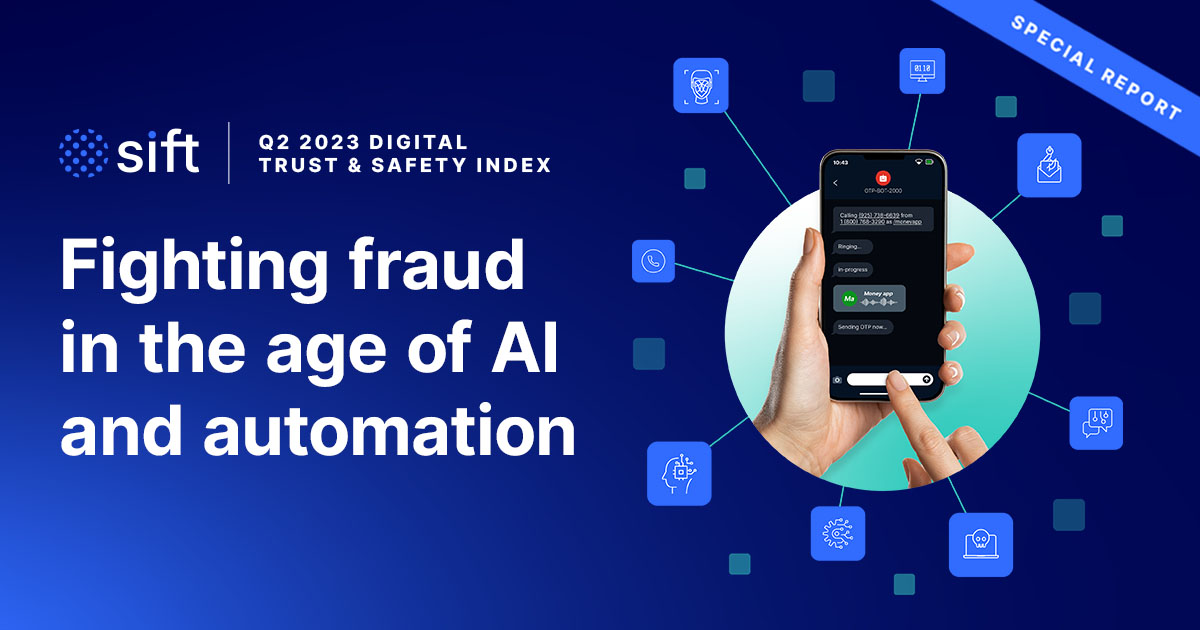
The latest findings from Sift illustrate how generative AI and automated tools are contributing to a rise in sophisticated social engineering scams that lead to downstream fraud attacks against businesses.
AI-enhanced scams are raising alarms
Rapid advancements in AI are becoming cause for concern among consumers, who fear it will be used to defraud them with social engineering scams and deep fakes.
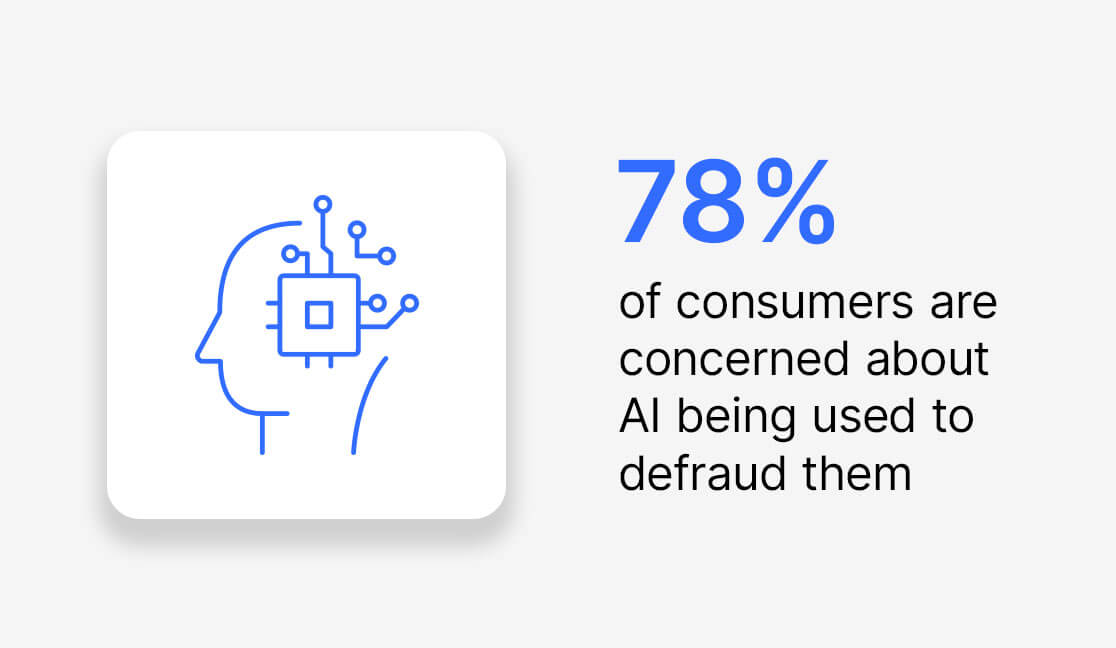

Scams are rising and becoming more difficult to spot
Over the last six months, consumers have experienced an influx of increasingly convincing social engineering scams, likely driven by fraudsters’ use of AI to strengthen their attacks.
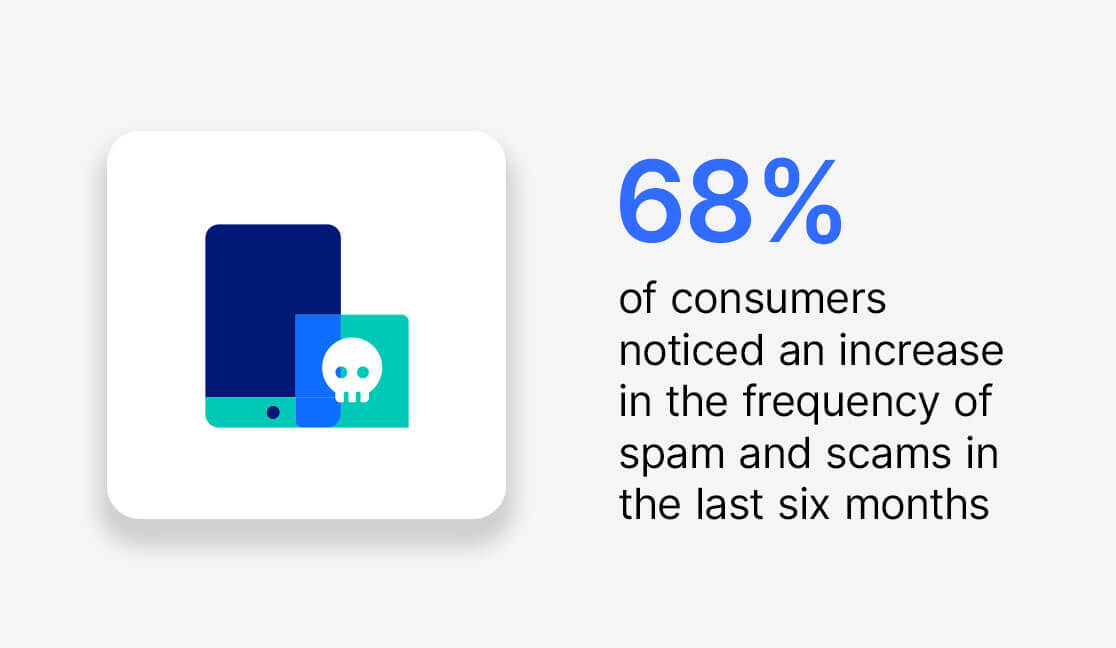

AI scams are leading to an influx of downstream fraud
The recent increase in social engineering scams is leading to a jump in downstream fraud, including account takeover attacks. Fraudsters are also using multiple attack methods to test platforms for weaknesses and maximize their chances for success.
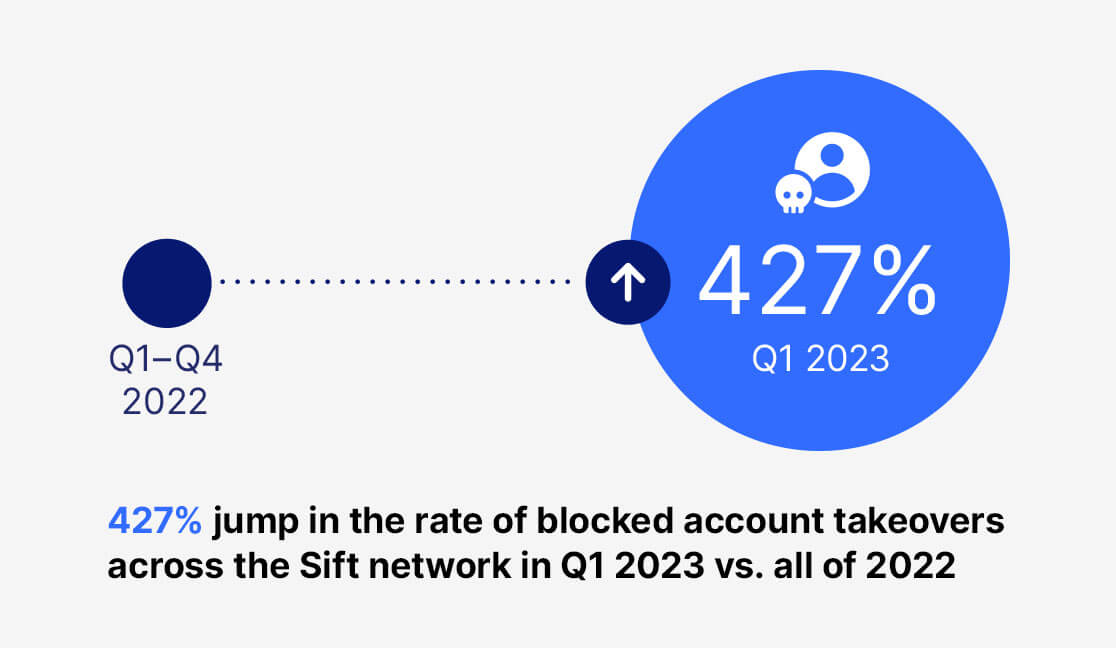
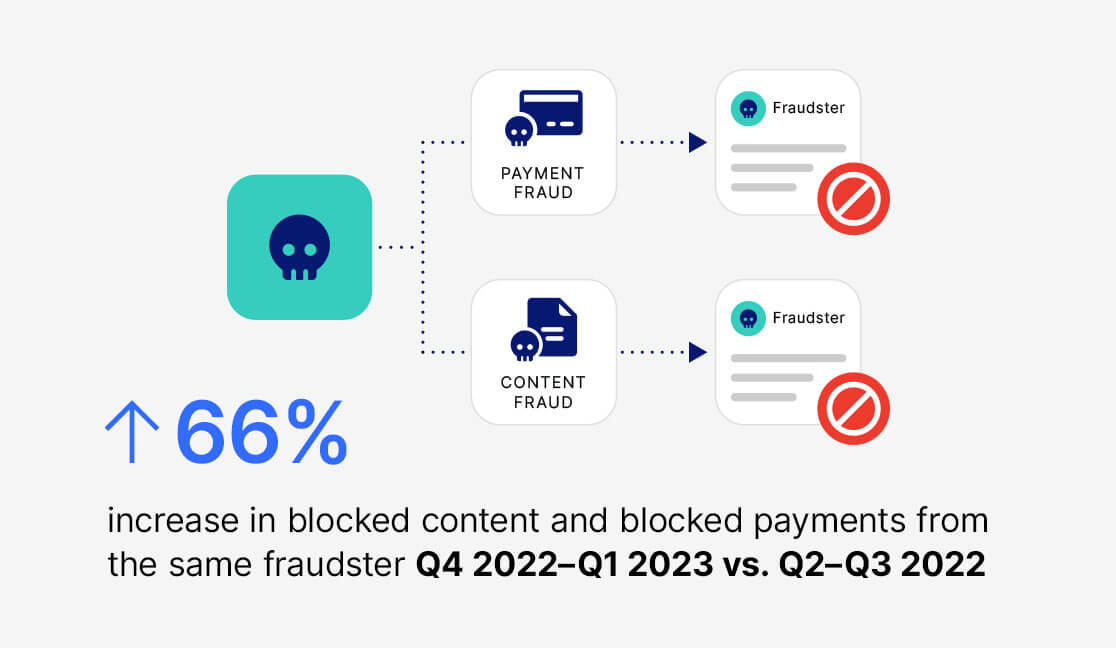
Automation is accelerating social engineering scams
Fraud is becoming more democratized with fraud-as-a-service schemes centered around automation, particularly bots using one-time password (OTP) SMS.
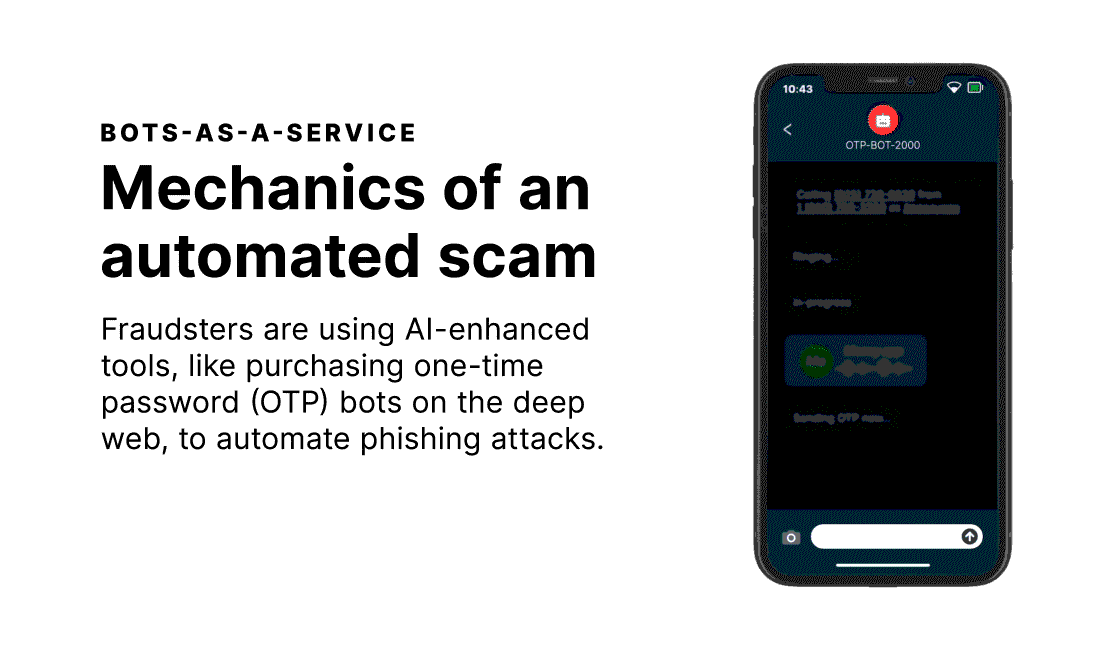
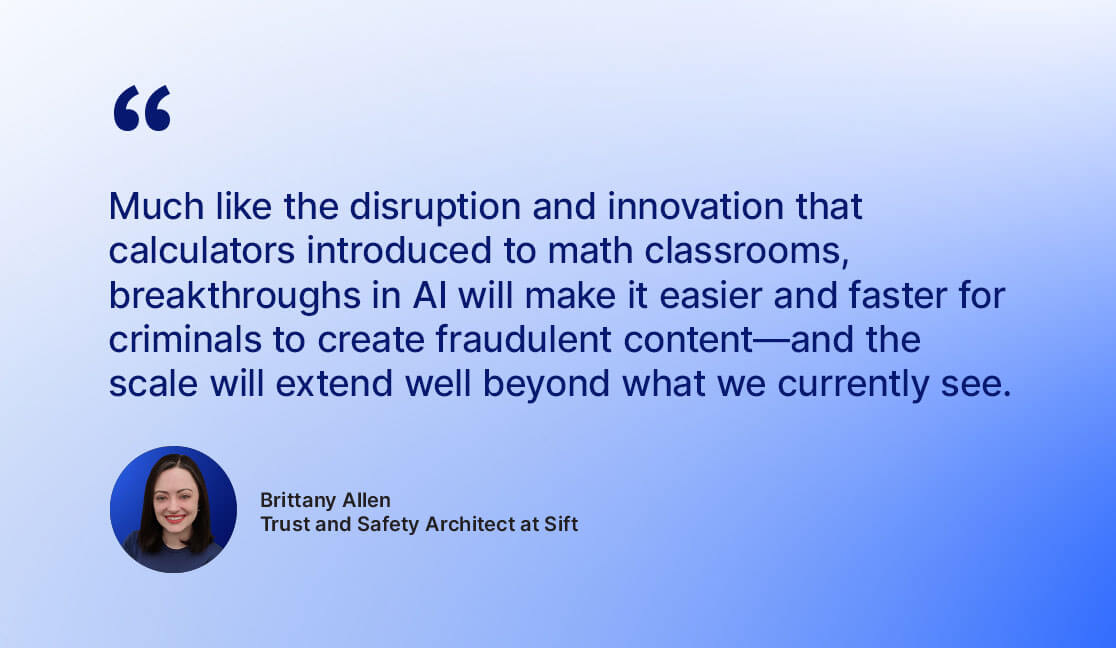
Sift Fraud Intelligence Center
Visit our Fraud Intelligence Center to explore data, trends, emerging fraud schemes, and expert insights from our global network and team of Trust and Safety Architects.



